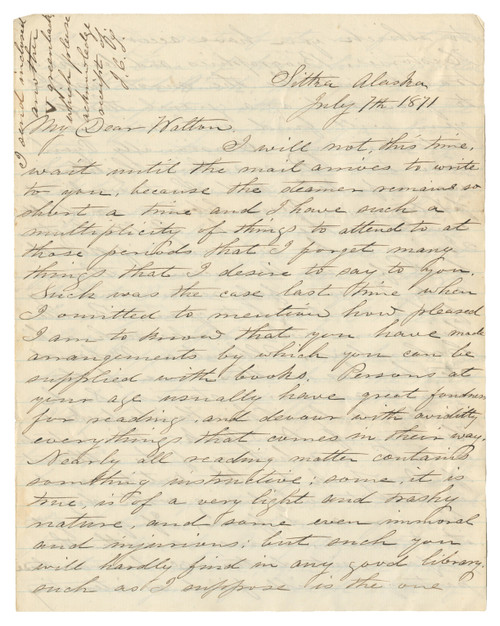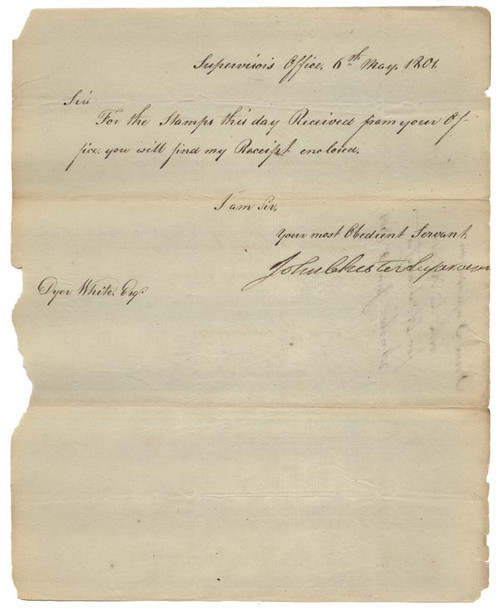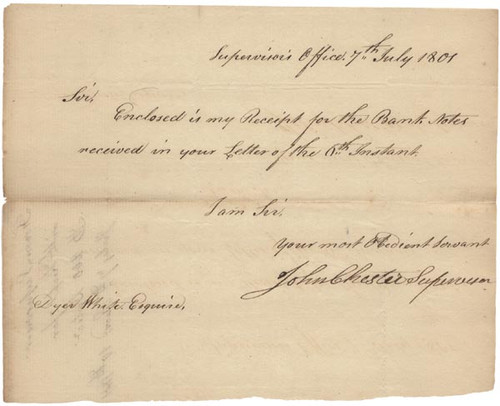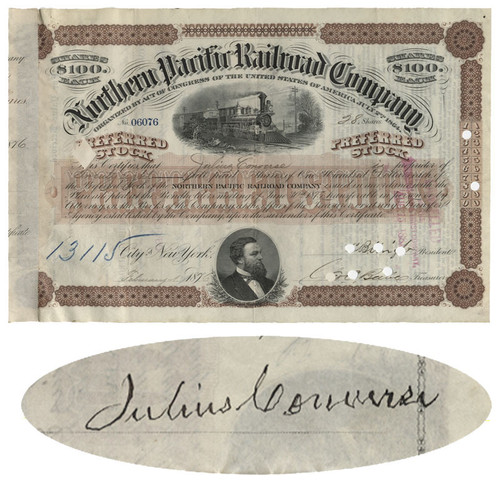"Altogether we had a day of a good deal of amusement; and certainly of a kind differing from any other place in the world; for what with Indians, Russians, soldiers, Jews and gentiles, with all sorts of customs and colors we had a motely and unique assembly."
John C. Tidball (1825 - 1906). Commander of the Department of Alaska and military governor of the region. An exception letter written and signed by John C. Tidball. John C. Tidball was a career military leader who served in the Union Army during the American Civil War. Tidball fought in battles such as Gettysburg. Also, he served as the Commander of the Department of Alaska which essentially represented the position of governor. The letter concerns a sort of festival that occurred between Americans, Russians, and Indians in Alaska. He provides great detail on the Independence Day festival on the Fourth of July and offers a colorful narrative on the activities of the day. Tidball covers a series of entertaining activities that occurred during the gathering. Sitka, Alaska. July 7, 1871. ALS. 8 Pages.
“My dear Walton,
I will not this time, wait until the mail arrives to write to you, because the steamer remains so short a time and I have such a multiplicity of things to attend to at those periods that I forget many things that I desire to say to you. Such was the case last time when I omitted to mention how pleased I am to know that you have made arrangements by which you can be supplied with books. Persons at your age usually have great fondness for reading and devour with avidity everything that comes in their way. Nearly all reading matter contains something instructive: some, it is true, is of a very light and trashy nature., and some even immoral and injurious; but such you will hardly find in any good library; such as I suppose is the one to which you have access. Histories, biographies, and books of travel will be the most useful to you and as a general thing you will find such reading very entertaining. Occasionally Ryan can turn to something lighter in way of tales and short works of fiction. Your library no doubt contains the works of Washington Irving, who was one, if not the best of our American authors. And I can safely recommend any of his writing to you. Besides his more solid works, such as his Columbus, Alhambra, Mohamed, etc he has written some of the most amusing stories. Such particularly in his knickerbockers history of new York. This pretends to be a true history of the settlement f New York by the Dutch and is full to overflowing with dry humor and fun. If you get it to read, commence with the preface, introductions, etc. because these parts you will find as interesting as any part of it in fact more so. One of his volumes is called the Sketch Book; this you will find complete with entertainment and fun; particularly a short story in it called the Legend of Sleepy Hollow, and one called Rip-Van-Winkle. I want you to get this book and read it.
I would like if you would tell me, each time you write, what you are or have been reading. What I have said to you upon nthe subject of reading I mean also for Johnie.
I suppose you will have a great deal to say about how the fourth of july passed off with you. I hope you had a jolly one, whether you went home or remained at Gambier. We folk, away off here, had a real first rate day in way of sports. At twelve oclock the national salute was fired, as prescribed by army regulators. A national salute, you must know, is one gun for each state of the Union. On the fourth of July it is fired at noon, at every military post and from every war vessel: so you see there is a good deal of government powder exploded in honor of our independence on each 4th of July.
After the saultewas fired, the Indians gave us canoe races. This was very fine indeed. There were three heats. The prize for the first hear was ten dollars and a keg of beer: for the second was ten dollars, as was also that for the third. In the first race, there were eleven canoes, each one carrying from fifteen to twenty Indians, or about nine paddlers on each side of the canoe. They fairly made their canoes fly along the surface of the water. In order that the same canoes should not win all the races the one the won the first heat was not allowed to enter in the next. Likewise the one that won the second was not allowed to enter for the third. In addition to the prizes for the canioe races we had raised about fifty dollars to be distributed as small prizes for other sports: the first of which were sack races. For this purose, a dozen or fifteen Indians were put into large sacks which were tied around the neck. Persons thus confined cannot run very fast and are extremely liable to tumble over and altogether cut a very ludicrous figure. In this care they tumbled and rolled about at a great rate, but they were so eager to win the prize that they would scrabble up and at it again only to tumble more. One fellow falling would bump up against there and all would come down together in a pile. Roars of laughter showed how much we enjoyed this ridiculous sight. After this we had wheelbarrow races. A row of a dozen or fifteen Indians were wellblindfolded, and each one having a wheelbarrow started for a race of about fifty yards, but being blindfolded soon they got going in all sorts of directions. Same, thinking they were going straight ahead for the goal would run for dear life away off to the right, while theirs would be as eager to the left. Others again would run their barrows against each other and all would be upset in a binch each fellow striving to get clear, (?) which sometimes they would start back with all eagerness towards the point of starting. As you may well imagine this too was great fun. Then we had rolling races. For this a whole raft of Indian boys were made to lie down in a row and at a signal to roll up a slightly inclined place, and some of them gave out before they had rolled ten feet; a few kept (?) to the end, about one hundred feet: but the most of them were scattered about promiscuously, (?), on account of dizziness, to get up, this too was quite funny. Then they tried a summersault race, which also was quite funny. Then we had straight races, and sound races., and races by the little squaws. It was funny to see a whole lot of these latter scratch ground. But about as much fun as anything was to see the little Indian boys scrabble for pieces of money thrown high up and falling down in the sand and gravel.
Altogether we had a day of a good deal of amusement; and certain;y of a kind differing from any other place in the world; for what with Indians, Russians, soldiers, Jews and gentiles, with all sorts of customs and colors we had a (?) and unique assembly. July 22, the mal has just arrived and delighted me with a letter from you of June 20. I was delighted with your account of Bore Day. You (?) had great sport and look forward with anxiety to the rime when you will be in college to play such pranks too. Maurice, Sue and I are all well. Maurice feels hurt that you never mention her name in your letters soon send here message. I wish you knew her because I know you would love her. Sue is growing finely and is as pretty as a pink. I was in (?) to have heard from grand by this mail; but did not. I wanted to hear if that box of Indian (?) reached home all right. I suppose I will hear by next mail. I am pronounced certainly to be relieved from Alaska by next steamer; but whether to fo to California or to Oregon I do not know. Present my kindest regards to Mr. and Mrs. Blake. Maurice send love to youand Sue would too if she could talk. Yours lovingly, John C. Tidball”
A superb content early Alaska letter from the pen of this highly decorated Civil War officer and Governor of Alaska.












